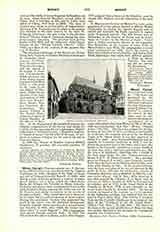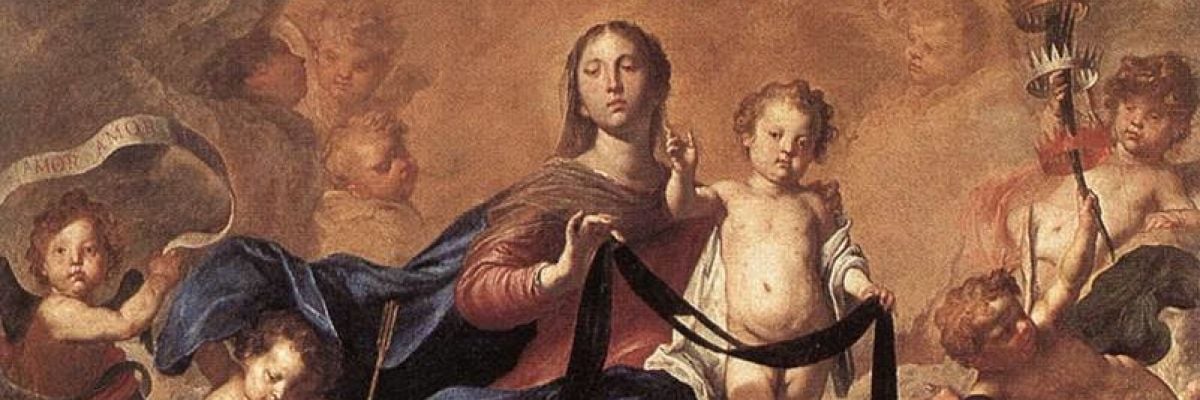

Mount Carmel, FEAST OF OUR LADY. This feast was instituted by the Carmelites between 1376 and 1386 under the title “Commemoratio B. Mariae Virg. duplex” to celebrate the victory of their order over its enemies in obtaining the approbation of its name and constitution from Honorius III on January 30, 1226.
The feast was assigned to July 16, because on that date in 1251, according to the Carmelite traditions, the scapular was given by the Blessed Virgin to St. Simon Stock; it was first approved by Sixtus V in 1587. After Cardinal Bellarmine had examined the Carmelite traditions in 1609, it was declared the patronal feast of the order, and is now celebrated in the Carmelite calendar as a major double of the first class with a vigil and privileged octave under the title “Commemoratio solemnis B.M.V. de Monte Carmelo”.
By a privilege given by Clement X in 1672, some Carmelite monasteries keep the feast on the Sunday in July. In the seventeenth century the feast was adopted by several diocese in the south of Italy, Carmelite churches of although its celebration, outside of Carmelite churches, was prohibited in 1628 by a detree contra abusus. On November 21, 1674, however, it was first granted by Clement X to Spain and its colonies, in 1675 to Austria, in 1679 to Portugal and its colonies, and in 1725 to the Papal States of the Church, on September 24, 1726, it was extended to the entire Latin Church by Benedict XIII.
The lessons contain the legend of the Scapular (q.v.); the promise of the Sabbatine privilege was inserted into the, lessons by Paul V about 1614. The Greeks of southern Italy and the Catholic Chaldeans have adopted this feast of the “Vestment of the 131. Virgin Mary” (Nilles, “Kal. Man.”, II, 548, 665). The object of the feast is the special predilection of Mary for those who profess themselves her servants by wearing her scapular.
FREDRICK G. HOLWECK


